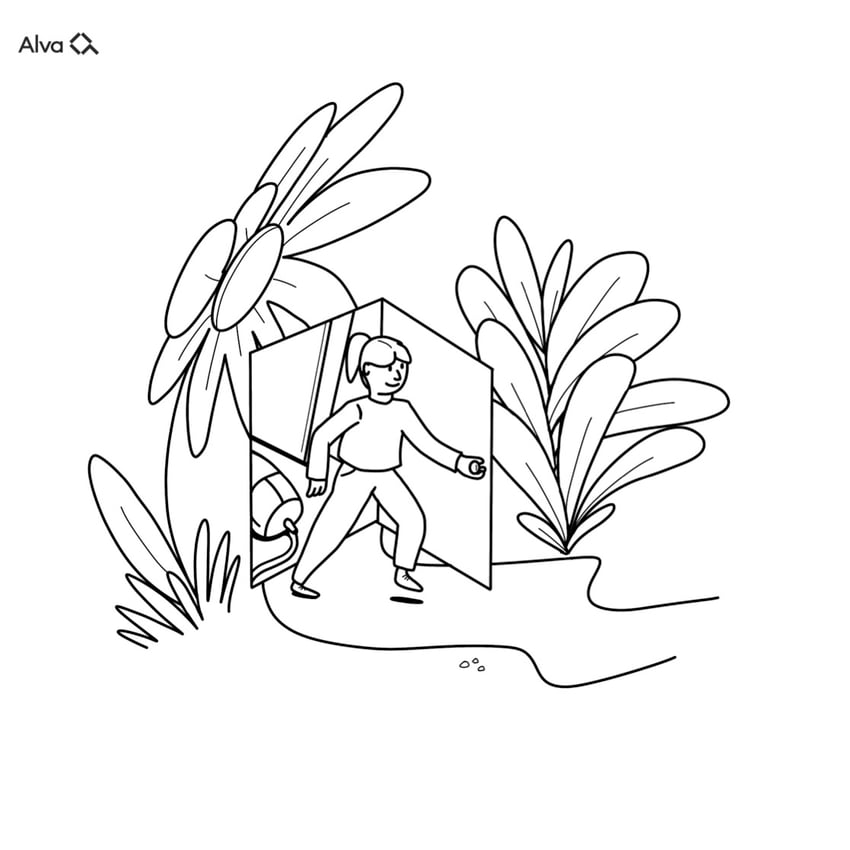As we know, automation and digital technologies are some of the major drivers of this shift. McKinsey reports that “the pandemic accelerated this trend to remote work, e-commerce and automation with 25% more workers than previously estimated potentially needed to change occupations.” Given this reality, how do we ensure the resilience and potential of our workforce in the face of an uncertain future?
Reskilling your workforce for 2030 & beyond
When McKinsey lists the top skills needed of tomorrow’s workforce, the list isn’t dominated by a bunch of hard skills. Sure, you have digital skills such as software development and algorithmic thinking in there. But take a look at some of the other capacities listed as crucial:
- Critical thinking
- Mental flexibility
- Developing relationships
- Teamwork effectiveness
- Self-leadership
These all belong to the category often called ‘soft skills’ – a term we need to start questioning. Although soft skills might seem fluffy, they’re a lot more robust to changing circumstances than their cousin, hard skills. So-called ‘hard skills’ are, rather, skills that can quickly become obsolete. One can learn a programme, a protocol, or a machine. They are indeed “hard”: inflexible, resistant to change, rigid. Many of the skills we need today, however, are more about handling an ever-changing environment with high uncertainty – especially in growth industries such as e-commerce.
By referring to these skills as ‘soft’ does them a disservice and allows them to be devalued, thought of as feminine or optional. Rather, we should start referring to them as “core skills”
Core skills as a tool for enhanced growth
Take a conversation a friend shared with me. She’d been talking with her 16 year old nephew, Sam. Now Sam was panicking about what A Levels to choose and how they’d apply to his future job prospects - what jobs would they lead to? How would he know? Should he study with his friends?
My friend had had a rough road into work, but it was starting to pick up for her, and she applied what she’d learned through costly time and error: she said - ‘Don’t worry about what jobs might be out there. Study what you love - you’re smart, you’re driven and ambitious. That won’t change”. My friend knows that her nephew is a team player, entrepreneurial, a leader and a cheerleader for his younger sister’s dance career. All these are core skills that he will be able to apply to any career path he chooses.
Why re-skilling is not the (only) answer
The most common response to the rapidly changing world of work is to call for re-skilling - using education to replace outdated skill sets. This is an important piece of the puzzle. However, the challenges ahead call for a broader mindshift in how we run our people operations.
The reason this matters is because re-skilling a team with hard skills in 2022 doesn’t mean that those skills will serve them in 2025, or beyond. This rapid tempo of change will only escalate as the fourth industrial revolution continues to emerge. A recent report by Deloitte showed that only 17 percent of employers say they will be able to foresee the skills needed by their organization 3 years down the road. What afternoon or year-long training course is going to take care of that future?
Learning on the job and dealing with change will need to be the new normal; Moa Wictorén, CHRO of Nordic cosmetic giant Lyko says, “the only thing you can be sure of is that the job you’re hiring for will be something else in the near future”. Part of the new normal for recruiters and Talent Acquisition will be to base hiring decisions just as much – or more – on the candidate’s ability to be adaptable, agile, and collaborative as on their hard skills.
Core skills for recruiters to consider
Understanding the essential, underpinning nature of core skills can allow us to reframe our hiring process. So, rather than demanding 5 years managerial experience, we might ask for demonstrable evidence of negotiation and conflict resolution; rather than Adobe Creative Suite, we might ask for examples of collaboration and creative thinking.
So, what are the core skills that recruiters should be considering?
The core skills we can start considering are:
- Accountability
- Collaboration
- Negotiation
- Conflict resolution
- Adaptability and flexibility
- Creative thinking
- Inclusion
- Coaching and mentoring
Core skill assessment & widening the talent pool
Focusing more on future potential and core skills not only helps us get the right people in the right place - it can also help us build a much more engaging hiring process, since our focus shifts towards the future, and towards human growth.
Who would you like to hire? Someone who’s been lucky enough to have the best opportunities in their past? Or how about someone who can lead you into the future?
Inspecting people’s historical track record for proof is a poor fit for a world where change is the new constant. Instead, imagine what your recruitment would look like if an inquiry into people’s soft skills and potential took center stage. Imagine a job interview where the number one focus is what the candidate wants to develop into - instead of going through a CV that both of you have already read.
Core skills and personality
How about hiring someone based on how fast they can learn some of the things on the job description - and even go beyond those? According to research, these qualities are a lot more important for performance than ticking all the boxes from the outset.
As HR leaders, we can choose to stick to our old ways of screening CVs and promoting the usual suspects. Or we can choose to make the mindshift and focus on those factors that really matter for long-term performance - core skills and potential.
Hire for potential
Ultimately, this is about creating the type of work life that we would like to be a part of. One where the focus is more on your future than on your past. Where drive and aspiration, not just historical merits, are acknowledged and celebrated. One where women and People of Colour get a chance to show what they’re capable of. One where a leadership career is not the only option for someone like myself, whose strengths lie elsewhere.

But just talking about this isn’t enough. We need the data and the common language to make core skills something concrete and tangible in the organization. One of the best ways to get there is to use evidence-based, data-driven recruiting tools, and make them household names. In the future, for instance, it will be normal that everyone knows their own personality traits. Knowing whether you’re mostly introverted or extroverted, or more conventional or innovative, for example, will help you steer towards a suitable career, and also communicate your wishes better to your manager.
As recruiters, knowing which core skills are essential to our growth and resilience will enable us to hire for potential and fit, irrespective of whether if the candidate has had the great good fortune to study at the most prestigious universities, or work and sought-after companies. We can hire the person, not a list of badges and status symbols.
The importance of 'future-proofing' your skillset
None of us know what the future will look like. We don’t know what jobs will exist 10 years down the line. It’s scary and it’s happening now. We’re all looking out towards a future that’s uncertain. But what we can know is that core skills and self-knowledge are two of the most future-proof resources we have at our disposal. And any tool that can help us to understand ourselves and our workforce better, will only benefit us.
My friend’s nephew? He achieved top A Levels - even whilst studying through the pandemic; in a year out he adapted his plans from travelling into a lucrative sales job, and landed the university place he wanted. He’s a confident person, yes; additionally, knowing his core skills, he can harness those, and drive his own success..
Let’s stop pretending like so-called ‘soft skills’ are a nice-to-have addition to ‘harder’ competencies, and start giving them the attention they truly deserve. These are the core skills of tomorrow, and should be evaluated as such.






